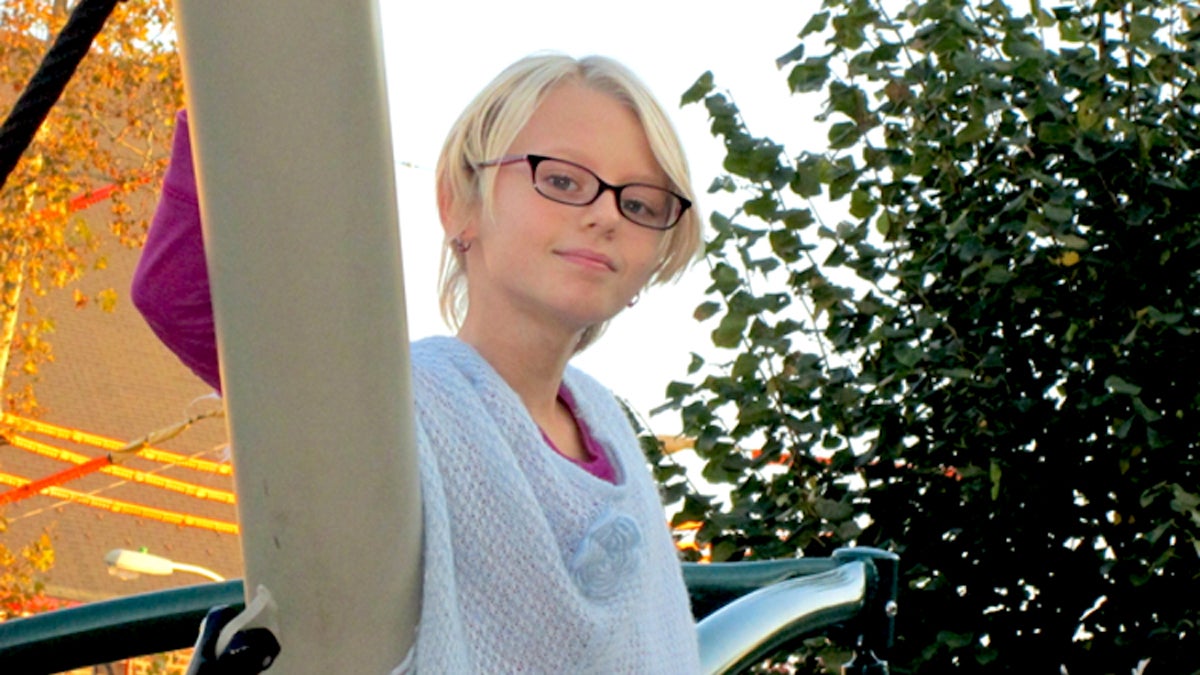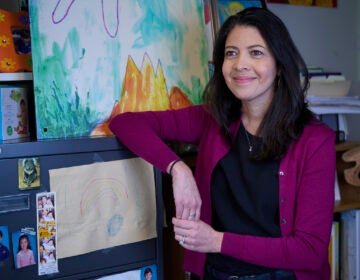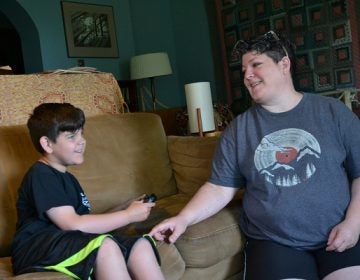I might have Asperger’s Syndrome, but do I really want to know?
People just don't seem to understand the way I think, so when they can follow my train of thought, it feels like I have superpowers.

Serenity Baruzzini (Mighty Writers)
Most people are unaware of the symptoms of Asperger’s syndrome. They include an unusually high IQ and a difficulty surviving in the social world. The fact that the symptoms vary in gender doesn’t help. Serenity Baruzzini, age 14, does not yet have a formal diagnosis, but she is struggling to decide whether or not she wants one at all.
—
Let me set the scene for you. It’s hot outside. We’re sitting near some old children’s playground toys, eating ice cream. The summer smells like riding old bicycles and blueberries. We talk for the longest time about Goosebumps books and what being alive feels like. I remember him mentioning something about wondering if the living dead still counts as being alive.
Dakota has autism.
This was a few summers ago, when we met up with our parents at a Schwinn bike swap. He is high functioning and a heck of a good time to talk to and hang out with. Out of all the friends I’ve had, I probably feel the most comfortable and can relate to the autistic ones the most. People just don’t seem to understand the way I think, so when they can follow my train of thought, it feels like I have superpowers.
In math class, I’m not a huge fan of following the rules. I love numbers, and I love the way they work. Prime numbers and all of the odd multiples of seven are my favorites. I like to manipulate numbers, and the way I’m taught just doesn’t always work. I have an easier time using more abstract methods to solve problems. It can be frustrating sometimes, because what I do on paper doesn’t quite match up with what is happening in my head. When my teacher asks me to explain how I got my answer, especially in front of the whole class, I struggle trying to find the right mathematical terminology to describe it. I love mathematics, but in the classroom, I can make myself sound like a total idiot. My math class is designed for neurotypical thinkers, which makes it harder for me to understand methods that aren’t as abstract as what I’m used to.
I’m with my regular group of friends at lunch when the new kid at school comes to joins us. I have no clue who he is, what he’s like, his social patterns, or how I can interact with him. It’s absolutely terrifying. I remember the past experiences I’ve had with meeting new people, and when characters on “Degrassi Junior High” met new people. I re-enact the responses that I know can work. I don’t even realize what I’m doing as I’m doing it. I do this all the time, and not just when I’m meeting new people. I do this in almost all social situations that have me like a deer at headlights. Not until recently did I learn this wasn’t normal, but it is common in girls on the same part of the spectrum we suspect I’m on.
Before I landed on a possible Asperger’s diagnosis, counselors and doctors suggested other things.
- OCD
- Severe ADHD
- Anxiety
And that’s just naming a few.
The biggest thing is just really that we don’t know for sure. It’s like putting a puzzle together in the dark. It’s difficult to put the pieces together, but not difficult to find them. Once you put all the pieces together, you still aren’t sure what the puzzle looks like. That’s what it felt like trying to solve this mystery.
I chose not to interview anyone for this commentary, because people don’t often like talking to me about it. They seem uncomfortable, like they are unsure of what to say. If they do engage, they ask questions that even I don’t know the answers to, which in turn makes me uncomfortable. My true friends choose not to talk about it merely because it doesn’t matter to them. What society has made out of the idea of being autistic is the stereotypical low-functioning autistic person. In society, having the label of being autistic could mean being treated as if I’m less than the rest of the people out there. It could also mean that I could be put on a pedestal. Sadly, it seems like it’s easier to just not say anything at all.
I’m haunted by the possibilities of the unknown portion of this diagnosis. I really want a diagnosis, but I’m not sure if I am quite ready to make a life-changing decision at the miniscule age of fourteen. There are so many things that I’m afraid of happening, like experiencing even more social inequality from the people I know and higher prices for health insurance. Even still, I’m being driven by the hope that it would help me find more of my identity and support from other Aspies. The hardest part of this is deciding whether all the downsides of a diagnosis are worth what I really want out of it.
It feels like there’s a black hole in my stomach when it comes to trying to make a decision for myself, for my future. If I do get tested, it’ll most likely come back negative due to the fact that they don’t really test for Asperger’s anymore. If by some weird event I do get diagnosed with Asperger’s syndrome, I have no idea where I’d go from there. All I know is that, whether or not I get tested, or even diagnosed for that matter, I’ll always be the number-loving, football-playing punk rocker that I always have been.
—
Serenity Baruzzini is a long-time Mighty Writers student. Her essay has been picked up by Youth Radio, a project based in Oakland, California.
WHYY is your source for fact-based, in-depth journalism and information. As a nonprofit organization, we rely on financial support from readers like you. Please give today.




